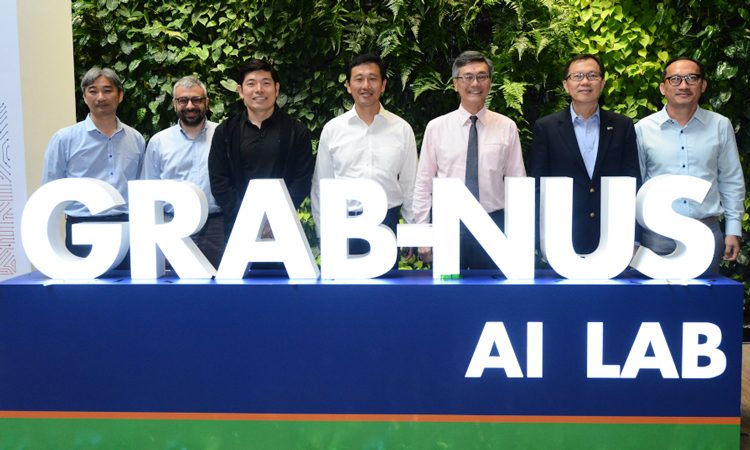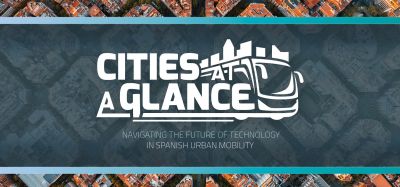Artificial intelligence laboratory launched to improve transport in Southeast Asia
- Like
- Digg
- Del
- Tumblr
- VKontakte
- Buffer
- Love This
- Odnoklassniki
- Meneame
- Blogger
- Amazon
- Yahoo Mail
- Gmail
- AOL
- Newsvine
- HackerNews
- Evernote
- MySpace
- Mail.ru
- Viadeo
- Line
- Comments
- Yummly
- SMS
- Viber
- Telegram
- Subscribe
- Skype
- Facebook Messenger
- Kakao
- LiveJournal
- Yammer
- Edgar
- Fintel
- Mix
- Instapaper
- Copy Link
Posted: 24 July 2018 | Intelligent Transport | No comments yet
Grab and NUS have opened an AI lab to support Southeast Asia by solving some of the region’s most pressing challenges, such as congestion and the liveability of cities.


The Grab-NUS AI Lab was launched by Minister for Education, Mr Ong Ye Kung (centre)
Together, Grab and the National University of Singapore (NUS) have launched an artificial intelligence (AI) laboratory to develop solutions that can transform urban transportation and prepare for smarter cities in Southeast Asia.
The ‘Grab-NUS AI Lab’, which has been set up with a joint initial investment of S$6 million, is Grab’s first major AI laboratory and NUS’ first AI laboratory with a commercial partner.
NUS President, Professor Tan Eng Chye, said: “The Grab-NUS AI Lab is an excellent collaborative effort where NUS researchers will work closely with Grab data scientists to create unique AI innovations based on insights relevant to Asia and the world. This is also a great opportunity for our researchers and students to make a real-world impact through our research in data science and AI. Over time, we hope to build a healthy pipeline of well-trained and experienced data scientists and researchers for Singapore and beyond.”
Situated at the NUS Institute of Data Science, the lab will leverage data from Grab’s platform to solve complex, real-world challenges in Southeast Asia. Having facilitated more than 2 billion rides, Grab’s data will provide deeper insights into how cities across Southeast Asia function. By combining the data with NUS’ research expertise in the field of AI, the lab will be able to highlight traffic patterns and identify methods that can directly impact mobility and liveability in cities.
Grab co-Founder and Group CEO, Anthony Tan, said: “Grab has a bold mission to solve Southeast Asia’s most complex challenges, especially the congestion that stifles our cities. The lab will harness the power of Grab’s data and machine learning with research and talent from a world leading institution, to become a valuable tool for governments who are bringing smarter transport to their cities in Southeast Asia.”
Tan continued: “Data from the Grab platform can map out the traffic patterns and evolution in mobility for cities across Southeast Asia. For example, our data shows that travel time from Newton to Tanjong Pagar can be drastically improved. If this route was better served by shared transport solutions, such as buses, trains, GrabShuttle, GrabShare or GrabHitch, we could bring travel time during peak hour down by one third, down from 40 to 28 minutes.”
Researchers at the Grab-NUS AI Lab will create a robust AI platform for large-scale machine learning and visual analytics that can develop novel applications from Grab’s massive data set. The lab will also focus on developing algorithms to better serve passengers with smarter and more personalised services, match drivers to the jobs they prefer, improve driving safety, detect traffic events and anomalies in real time and improve precision and accuracy in mapping pick-up points.
The AI lab will also contribute to local AI talent development through the training of PhD students that will be enrolled at NUS. Supported by the Singapore Economic Development Board (EDB), the PhD training programme will allow students to not just build the relevant skills, but also apply them to real world challenges through the Grab platform.
Related topics
Artificial Intelligence
Related cities
South-East Asia
Related organisations
Grab, National University of Singapore
Related people
Anthony Tan, Tan Eng Chye







